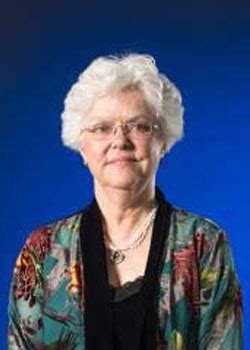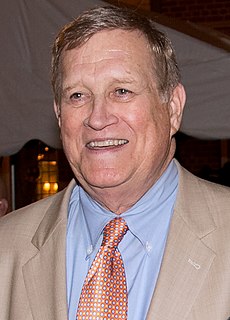A Quote by Max Born
Science is not formal logic-it needs the free play of the mind in as great a degree as any other creative art. It is true that this is a gift which can hardly be taught, but its growth can be encouraged in those who already posses it.
Related Quotes
I end with a word on the new symbols which I have employed. Most writers on logic strongly object to all symbols. ... I should advise the reader not to make up his mind on this point until he has well weighed two facts which nobody disputes, both separately and in connexion. First, logic is the only science which has made no progress since the revival of letters; secondly, logic is the only science which has produced no growth of symbols.
What Artistic and Scientific Experience Have in Common - Where the world ceases to be the scene of our personal hopes and wishes, where we face it as free beings admiring, asking, and observing, there we enter the realm of Art and Science. If what is seen and experienced is portrayed in the language of logic, we are engaged in science. If it is communicated through forms whose connections are not accessible to the conscious mind but are recognized intuitively as meaninful, then we are engaged in art. Common to both is the loving devotion to that which transcends personal concerns and volition.
Philosophy, for Plato, is a kind of vision, the 'vision of truth'...Everyone who has done any kind of creative work has experienced, in a greater or less degree, the state of mind in which, after long labour, truth or beauty appears, or seems to appear, in a sudden glory - it may only be about some small matter, or it may be about the universe. I think that most of the best creative work, in art, in science, in literature, and in philosophy, has been a result of just such a moment.
We don't know how large a proportion of the significant evidence about the universe is excluded by science. Perhaps hardly any. Perhaps so great a proportion that any body of knowledge which excludes it is hardly more than a caricature. Perhaps something in between - so that science finds truth but not the whole truth.
I have said that science is impossible without faith. ... Inductive logic, the logic of Bacon, is rather something on which we can act than something which we can prove, and to act on it is a supreme assertion of faith ... Science is a way of life which can only fluorish when men are free to have faith.
I was accepted to Colorado State University in Fort Collins, which is a terrific Aggie school, and they had a great forestry program. But when I saw the syllabus and realized what I was going to actually have to be studying, there was a lot of science! If you want a degree in forestry, it's basically a science degree. And I just thought, "No, no, no, wait a second. Never mind!"
Almost all education has a political motive: it aims at strengthening some group, national or religious or even social, in the competition with other groups. It is this motive, in the main, which determines the subjects taught, the knowledge offered and the knowledge withheld, and also decides what mental habits the pupils are expected to acquire. Hardly anything is done to foster the inward growth of mind and spirit; in fact, those who have had the most education are very often atrophied in their mental and spiritual life.
"There is one basis of science," says Descartes, "one test and rule of truth, namely, that whatever is clearly and distinctly conceived is true." A profound psychological mistake. It is true only of formal logic, wherein the mind never quits the sphere of its first assumptions to pass out into the sphere of real existences; no sooner does the mind pass from the internal order to the external order, than the necessity of verifying the strict correspondence between the two becomes absolute. The Ideal Test must be supplemented by the Real Test, to suit the new conditions of the problem.
To have the management of the mind is a great art, and it may be attained in a considerable degree by experience and habitual exercise... Let him take a course of chemistry, or a course of rope-dance, or a course of any thing to which he is inclined at the time. Let him contrive to have as many retreats for his mind as he can, as many things to which it can fly from itself.
Among all the liberal arts, the first is logic, and specifically that part of logic which gives initial instruction about words. ... [T]he word "logic" has a broad meaning, and is not restricted exclusively to the science of argumentative reasoning. [It includes] Grammar [which] is "the science of speaking and writing correctly-the starting point of all liberal studies."
Canada is the linchpin of the English-speaking world. Canada, with those relations of friendly, affectionate intimacy with the United States on the one hand and with her unswerving fidelity to the British Commonwealth and the Motherland on the other, is the link which joins together these great branches of the human family, a link which, spanning the oceans, brings the continents into their true relation and will prevent in future generations any growth of division between the proud and the happy nations of Europe and the great countries which have come into existence in the New World.
The great river-courses which have shaped the lives of men have hardly changed; and those other streams, the life-currents that ebb and flow in human hearts, pulsate to the same great needs, the same great loves and terrors. As our thought follows close in the slow wake of the dawn, we are impressed with the broad sameness of the human lot, which never alters in the main headings of its history--hunger and labour, seed-time and harvest, love and death.





































